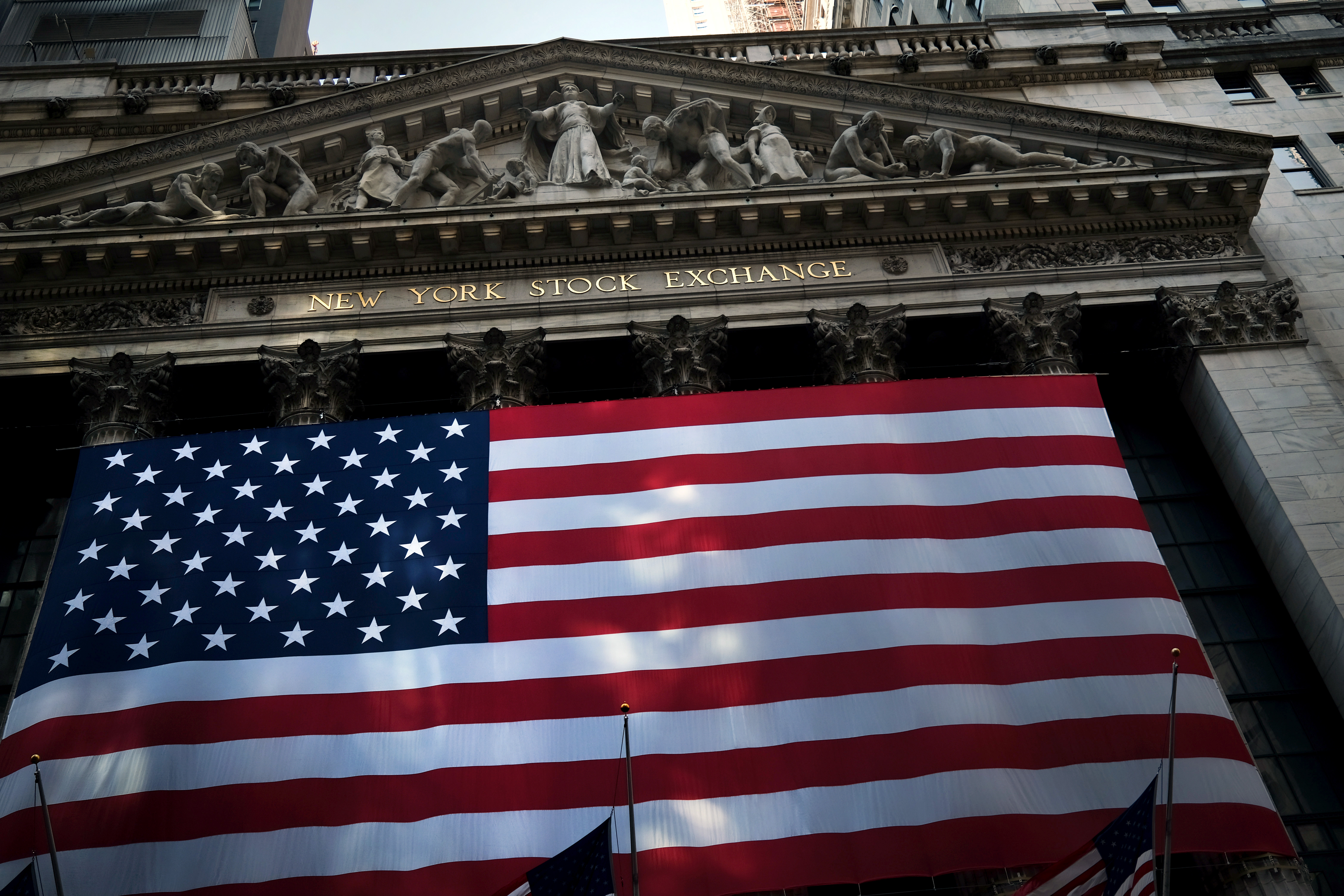Markets surge as Washington gridlock becomes likelier with potential Biden win


A free daily email with the biggest news stories of the day – and the best features from TheWeek.com
You are now subscribed
Your newsletter sign-up was successful
The U.S. stock indexes were buoyed on Wednesday, apparently responding to the increasing possibility of a Washington gridlock created by a potential Democratic White House and Republican Senate.
The idea is that "gridlock can be good for stocks because it lowers the chances of sweeping policy changes, such as tax increases, that might hurt profits," The New York Times reports. The S&P 500 ended 2.2 percent higher in what was its biggest increase since June, and the tech-heavy NASDAQ-100 closed 3.9 percent higher in its biggest increase since April. The Dow Jones Industrial Average also rose 367, or 1.3 percent:
While the potential for gridlock might assure stability, "those developments also throw a wrench into an easy pathway for additional fiscal stimulus that some analysts say is needed to help the economy recover from the damage wrought by the coronavirus pandemic," The Wall Street Journal adds, noting that "investors appeared to back off from buying shares of economically sensitive companies, the 'blue-wave trade' that had been gaining traction ahead of the election on the expectation of another round of economic aid. Instead, investors reverted back to snapping up the stock market's most enduring winners, shares of technology companies."
The Week
Escape your echo chamber. Get the facts behind the news, plus analysis from multiple perspectives.

Sign up for The Week's Free Newsletters
From our morning news briefing to a weekly Good News Newsletter, get the best of The Week delivered directly to your inbox.
From our morning news briefing to a weekly Good News Newsletter, get the best of The Week delivered directly to your inbox.
Analysts further warned that the rally — which was in its third day on Wednesday — would likely only last so long. "At this point, we've got a couple days' good grace with the market — but we need a winner fairly soon or it's going to upset the apple cart," Ryan Detrick, the chief market strategist at LPL Financial, told the Times.
A free daily email with the biggest news stories of the day – and the best features from TheWeek.com
Jeva Lange was the executive editor at TheWeek.com. She formerly served as The Week's deputy editor and culture critic. She is also a contributor to Screen Slate, and her writing has appeared in The New York Daily News, The Awl, Vice, and Gothamist, among other publications. Jeva lives in New York City. Follow her on Twitter.
-
 Nuuk becomes ground zero for Greenland’s diplomatic straits
Nuuk becomes ground zero for Greenland’s diplomatic straitsIN THE SPOTLIGHT A flurry of new consular activity in the remote Danish protectorate shows how important Greenland has become to Europeans’ anxiety about American imperialism
-
 ‘This is something that happens all too often’
‘This is something that happens all too often’Instant Opinion Opinion, comment and editorials of the day
-
 House votes to end Trump’s Canada tariffs
House votes to end Trump’s Canada tariffsSpeed Read Six Republicans joined with Democrats to repeal the president’s tariffs
-
 TikTok secures deal to remain in US
TikTok secures deal to remain in USSpeed Read ByteDance will form a US version of the popular video-sharing platform
-
 Unemployment rate ticks up amid fall job losses
Unemployment rate ticks up amid fall job lossesSpeed Read Data released by the Commerce Department indicates ‘one of the weakest American labor markets in years’
-
 US mints final penny after 232-year run
US mints final penny after 232-year runSpeed Read Production of the one-cent coin has ended
-
 Warner Bros. explores sale amid Paramount bids
Warner Bros. explores sale amid Paramount bidsSpeed Read The media giant, home to HBO and DC Studios, has received interest from multiple buying parties
-
 Gold tops $4K per ounce, signaling financial unease
Gold tops $4K per ounce, signaling financial uneaseSpeed Read Investors are worried about President Donald Trump’s trade war
-
 Electronic Arts to go private in record $55B deal
Electronic Arts to go private in record $55B dealspeed read The video game giant is behind ‘The Sims’ and ‘Madden NFL’
-
 New York court tosses Trump's $500M fraud fine
New York court tosses Trump's $500M fraud fineSpeed Read A divided appeals court threw out a hefty penalty against President Trump for fraudulently inflating his wealth
-
 Trump said to seek government stake in Intel
Trump said to seek government stake in IntelSpeed Read The president and Intel CEO Lip-Bu Tan reportedly discussed the proposal at a recent meeting
